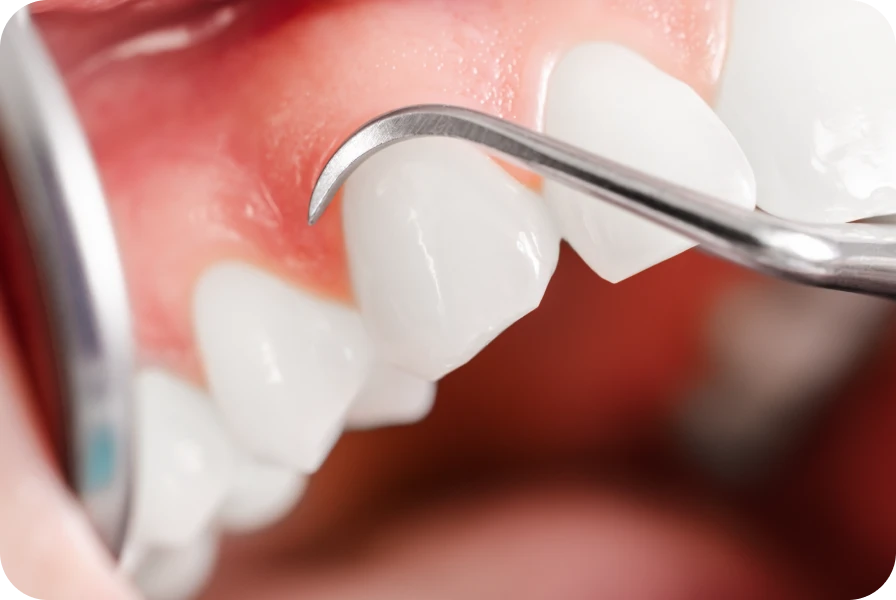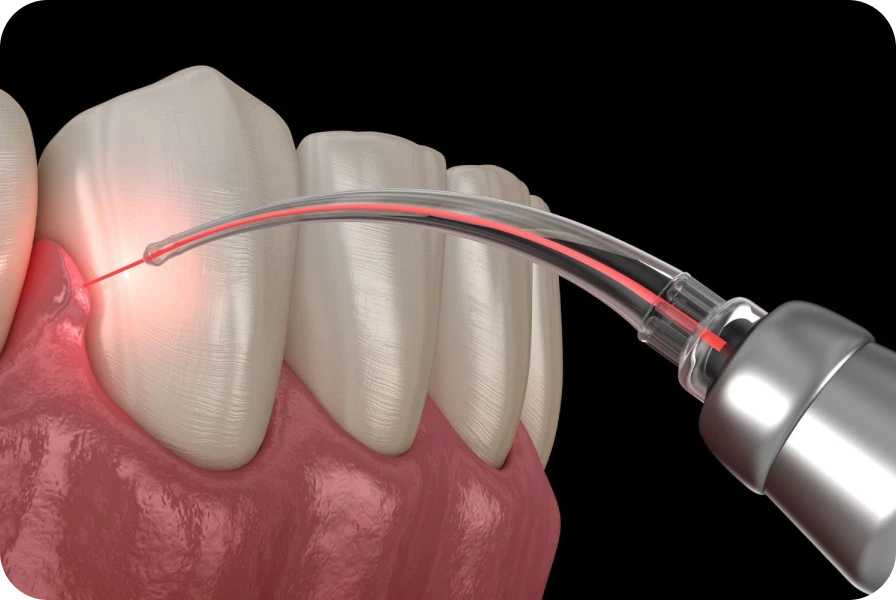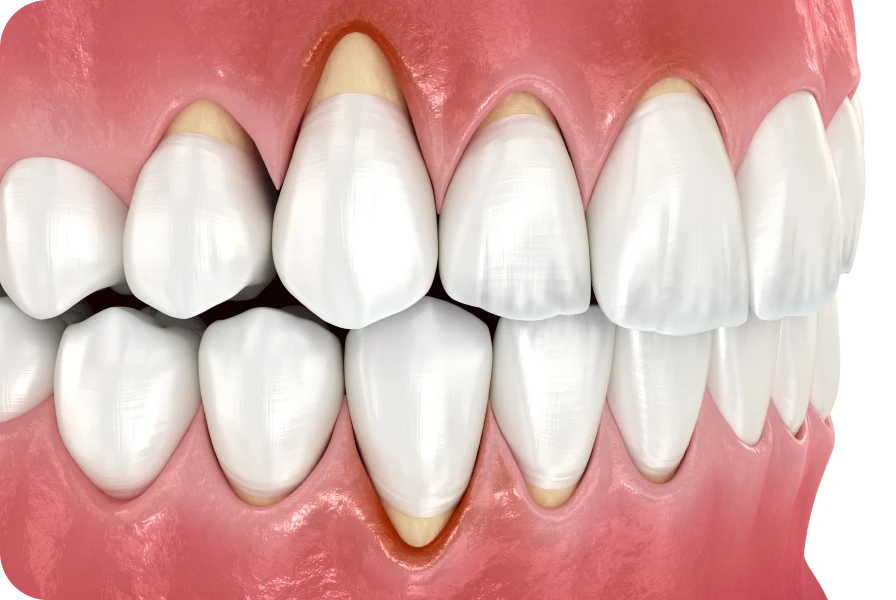Periodontology
What is Periodontology?
Periodontology is the branch of dentistry that focuses on the supporting tissues of the teeth. These primarily include the gums, alveolar bone, periodontal ligament, and root cementum. These structures are essential for the health and stability of the teeth. When these tissues are healthy, they provide good support for the teeth and prevent more serious dental problems. It is crucial to monitor and maintain periodontal health to prevent more serious complications.
What are the Signs of Periodontal Disease?
The signs of periodontal disease can be subtle at first. However, they worsen if the disease progresses. Watch for the following signs:

- Bleeding gums when brushing or flossing.
- Redness or swelling of the gums.
- Persistent bad breath.
- Gum recession, making teeth appear longer.
- Increased tooth sensitivity.
- Loose or shifting teeth.
If you notice one or more of these symptoms, consult a dental professional immediately to assess your periodontal health.
How to Prevent Periodontal Diseases?
The prevention of periodontal diseases primarily relies on good oral hygiene. Here are some tips to follow:
- Brush your teeth at least twice a day with a soft-bristled toothbrush.
- Use fluoride toothpaste to strengthen tooth enamel.
- Floss daily to remove plaque between teeth.
- Undergo regular dental cleanings at a dentist.
- Avoid tobacco, which worsens periodontal diseases.
- Monitor your diet by limiting sugars and consuming vitamin-rich foods. By following these recommendations, you will significantly reduce the risk of developing periodontal disease.
What are the Stages of Periodontal Treatment?
The treatment of periodontal diseases involves several stages:

- Regular follow-up: Follow-up appointments are essential to monitor the disease’s progression and adjust treatment as needed. By diligently following these steps, you will improve your gum health and avoid complications.
- Initial assessment: The dentist or periodontist assesses the condition of your gums and determines the extent of the disease.
- Deep cleaning: The professional performs scaling and root planing to remove plaque and tartar accumulated below the gums.
- Additional treatments: If necessary, antibiotics or laser treatments may be used to reduce inflammation.
Can Periodontitis Lead to Tooth Loss?
Yes, periodontitis is one of the main causes of tooth loss in adults. As the disease progresses, the gums recede, exposing the tooth roots. This leads to the destruction of the alveolar bone and periodontal ligament. The teeth then become mobile and may eventually fall out. It is therefore crucial to treat periodontitis as early as possible to avoid these serious consequences.
What are the Treatments for Gum Recession?
Gum recession can be treated in various ways depending on its severity:
Regular monitoring: Consult a dentist regularly to monitor the progression of the recession. The appropriate treatment will depend on the cause and extent of the gum recession.
Improved oral hygiene: Correct your brushing technique to avoid worsening the recession.
Gum graft: This procedure involves taking healthy tissue to cover exposed roots.
Use of composite resin: In some cases, a professional may apply a resin to protect the roots.

How is a Gum Graft Performed?
A gum graft is a surgical procedure aimed at covering exposed tooth roots. Here’s how it is performed:
- Local anesthesia: The professional applies anesthesia to ensure your comfort.
- Tissue harvesting: The surgeon takes healthy tissue, usually from the palate, to graft it onto the affected area.
- Sutures: The grafted tissue is sutured onto the receding gum.
- Post-operative follow-up: You will receive instructions on how to care for the grafted area during healing. This procedure helps protect tooth roots and prevent the progression of recession.
Does Periodontitis Affect General Health?
Yes, periodontitis can have repercussions on general health. Bacteria present in periodontal pockets can enter the bloodstream and spread to other parts of the body. This can increase the risk of cardiovascular diseases, diabetes, and complications during pregnancy. It is therefore essential to treat periodontitis not only to preserve oral health but also to protect your general health.
Are Periodontal Treatments Painful?
Periodontal treatments are generally not painful. They are performed under local anesthesia to ensure your comfort. After the treatment, you might experience slight sensitivity or discomfort that will subside within a few days. Post-operative instructions will be provided to manage pain and facilitate healing.
How to Prevent Periodontitis Recurrence?
To prevent periodontitis recurrence, it is essential to maintain good oral hygiene and follow your dentist’s recommendations. Here are some tips:
- Brush your teeth after every meal.
- Floss daily.
- Undergo regular dental cleanings at the dentist.
- Avoid smoking.
- Adopt a balanced diet. By following these recommendations, you will minimize the risk of recurrence and maintain healthy gums.
When to Consult a Periodontist?
Consult a periodontist as soon as you notice signs of periodontal disease, such as bleeding, gum recession, or loose teeth. Even if your symptoms are mild, it is best to treat them early to avoid complications. Regular follow-up with a periodontist is also recommended if you have a history of periodontal diseases.
